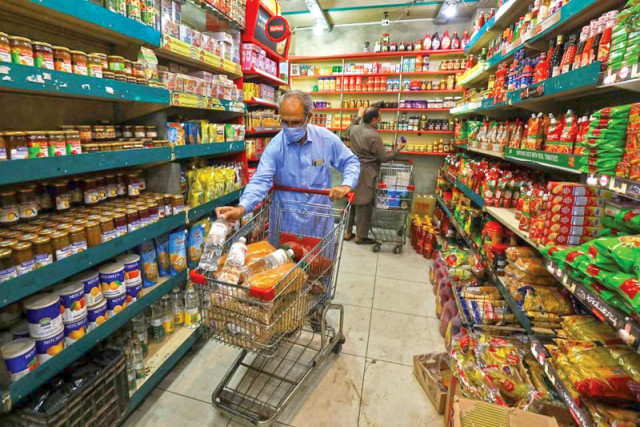A welcome commodities’ U-turn
Fall in prices provides opportunity to develop fine blueprints, muster political will

Pakistan’s economic misfortunes are aplenty. Persistent ignorance of structural reforms has brought us close to the brink of economic default, yet again.
When the bar is set too low – and often unmet, prosperity is intertwined with the external factors beyond our control. In Pakistan’s fragile economic framework, global commodity prices dictate its wellbeing or the lack of it.
Commodity prices had been skyrocketing post-Covid due to excessive money printing, supply chain disruptions, global demand rebound and roiling of energy markets post-Ukraine-Russia war.
As a net energy importer – and dismally low exporter, previous US dollar reserves were usurped to spur consumption after Covid. By the time, we realised the dead end, it was too little and too late.
Politics overpowered in the form of freeze in domestic fuel and electricity prices. An unwise decision!
Thus, we have seen economic uncertainty increase month upon month as new policymakers dithered at the consequences of governing in a decades-high inflationary regime. And they are forced to (rightly) pass on fuel, gas and electricity cost to the consumer in one go. IMF ain’t buying any castles in the air anymore.
Notwithstanding dark clouds – flooding our prosperity hopes, silver lining is being noticed. Ever since US Federal Reserve raised interest rates by 75 bps – with expectation of another 50bps hike next, markets have become fearful.
The risks of recession are overshadowing the stubborn inflationary trends as central banks join heads to ward off recessionary risks of over-tightening. Chinese growth slowdown is adding fuel to global contraction
as well.
Similarly, Biden’s reluctant visit to Saudi Arabia amid calls for cheaper energy prices and cap on Russian fuel prices, has stabilised global oil prices from $125 to less than $100 a barrel.
As Pakistan’s single largest import, energy sways our wellbeing in a jiffy. Also, due to recession fears, refinery margins are also simmering towards single digits as opposed to unsustainable $40-50 per barrel. Thank that for the recent price cut, not
the politicians.
Additionally, downward spiral is also witnessed in steel, copper, wheat, palm oil, rapeseed, soybean oil, sugar, etc, while decline in cotton prices is net negative for the country as export growth was primarily textile-led, notwithstanding cotton imports.
However, coal and RLNG prices are persistently stubborn due to tight gas markets and demand from the EU, which is dislodging Russian gas. Overall, it’s a promising trend. Oh, don’t let the guards down yet.
IMF’s programme is a stop-gap agreement till June 2023. In that period, the books need to be balanced by passing energy prices abruptly and reducing
provincial spending.
It’s an opportunity to lay groundwork for structural changes. Umpteenth time it is emphasised to reduce the stock and flow of circular debt, privatise loss-making railways, steel mills, DISCOs and PIA. And engage businesses through public-private partnership.
These liabilities are pushing us to default. At 15% discount rate, private sector ain’t gonna create any jobs.
For Pakistan’s sustainable growth, youth has to be reskilled away from low-margin primary industries towards high-income technology exports.
One dollar of tech exports requires paltry cents of imports vs $0.7-8 imports in an otherwise industrial complex. Granted, given the youth fat, we need the latter as well.
The most fearful factor at the moment is political disharmony and potential clash of institutions. Scenes from Sri Lanka are horrific reminders of weak state control and heightened
public anger.
Under the IMF, we have dodged the default (phew) but situation is fluid. Only next general elections should reduce the risks and parties should take oath to accept the results. Thus, work on electoral
reforms is vital.
Otherwise, after June 2023 (end of IMF programme) given the policymakers’ tug of war, economic consequences would
be devastating.
As a matter of fact, we need reforms for next five years. Without IMF, it’s doubtful that current and previous set of rulers would deliver the commitment needed to fix the house.
Going back to IMF amid another chaotic political episode after general elections would push us towards Sri Lanka and Argentina
esque situation.
Nonetheless, temporary decline in commodity prices is a window of opportunity to go back to board room and develop fine blueprints and muster political will.
With only a year until new elections, the motivation is low. Nonetheless, we can’t afford to turn a blind eye while teetering at
the edge.
With slim chances of Iran nuclear deal with the West, another shock to energy markets after a geopolitical event in our neighborhood, will sink the boat. Prepare for the worst. Murky
clouds ahead.
The writer is an investment specialist with keen interest in political economy
Published in The Express Tribune, July 18th, 2022.
Like Business on Facebook, follow @TribuneBiz on Twitter to stay informed and join in the conversation.



















COMMENTS
Comments are moderated and generally will be posted if they are on-topic and not abusive.
For more information, please see our Comments FAQ